Munya Chawawa on redefining masculinity through his comedy
Munya Chawawa has made a name for himself as a razor-sharp comedian who can be relied upon to satirise the news like no one else. Here, our Awards host talks to Rolling Stone UK about growing up in a Norfolk village, his struggles with clichés around masculinity, and why he made the move into stand-up
By Nick Reilly
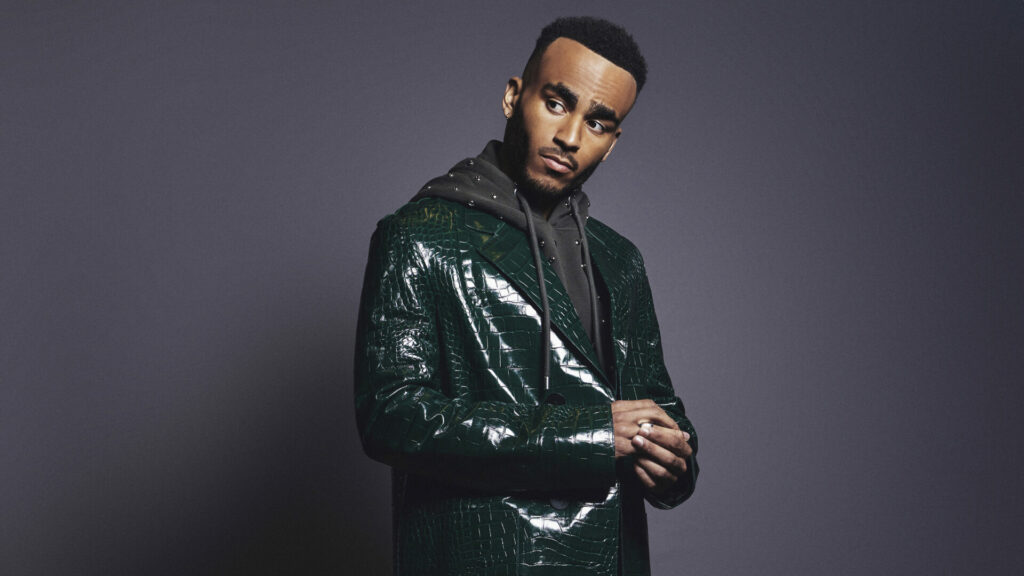
“I remember being on holiday last year. It was churro Tuesday and there was going to be unlimited churros on the breakfast buffet,” Munya Chawawa recalls over lunch in an east London bistro.
“I woke up and I could smell the churros wafting down the corridor and I’d planned to binge on a load of them and just wallow in the sun for the whole day. But then I looked at my phone and saw I’d been sent a video. I opened it up and saw Will Smith slapping Chris Rock on-stage at the Oscars. From that point on, I just knew that my final day of holiday was going to be spent making a parody video for Instagram over the terrible Wi-Fi connection of a hotel in Fuerteventura.”
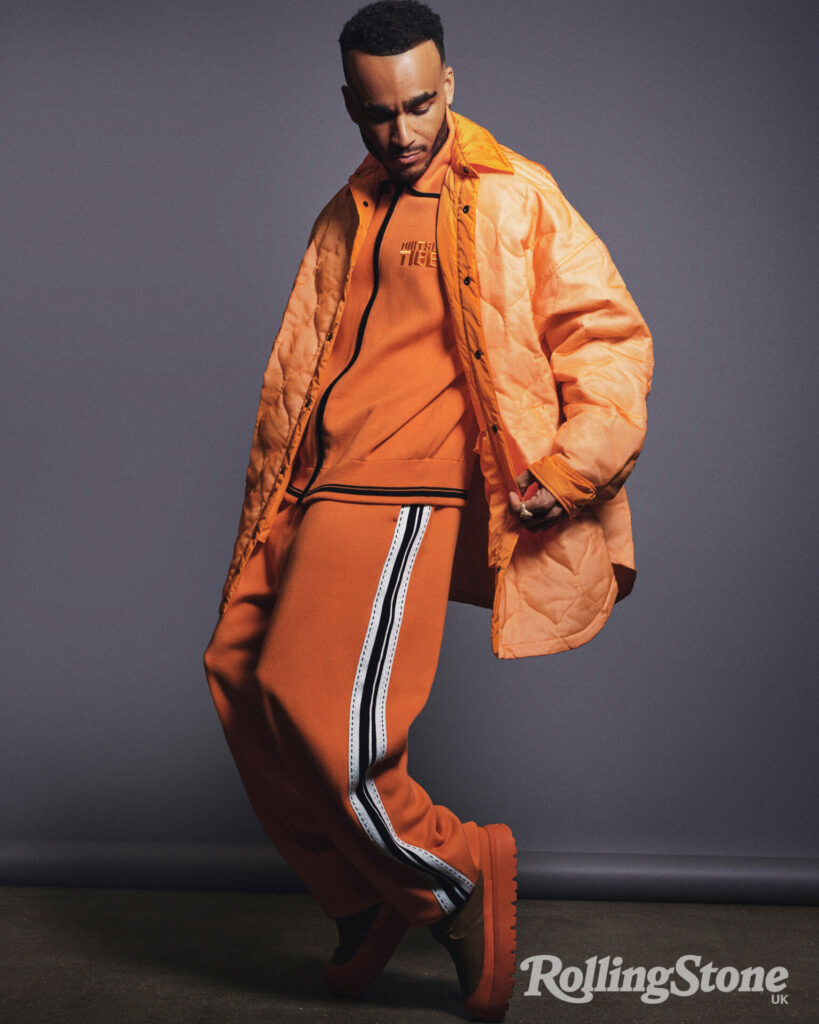
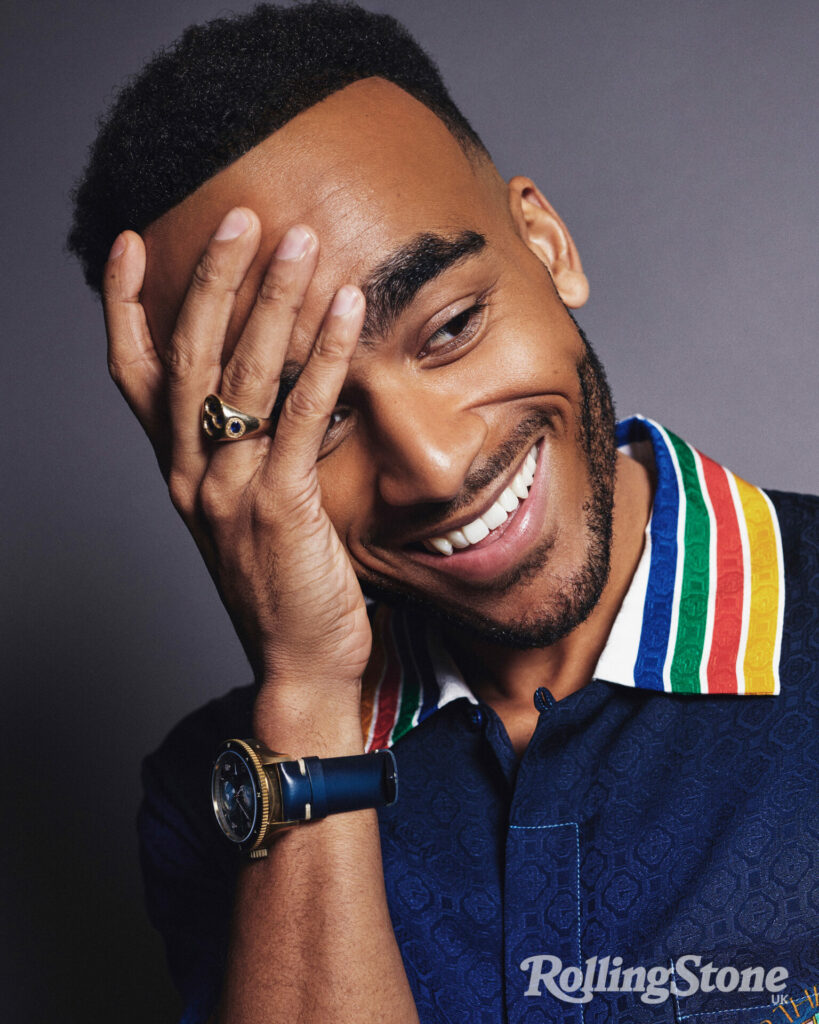
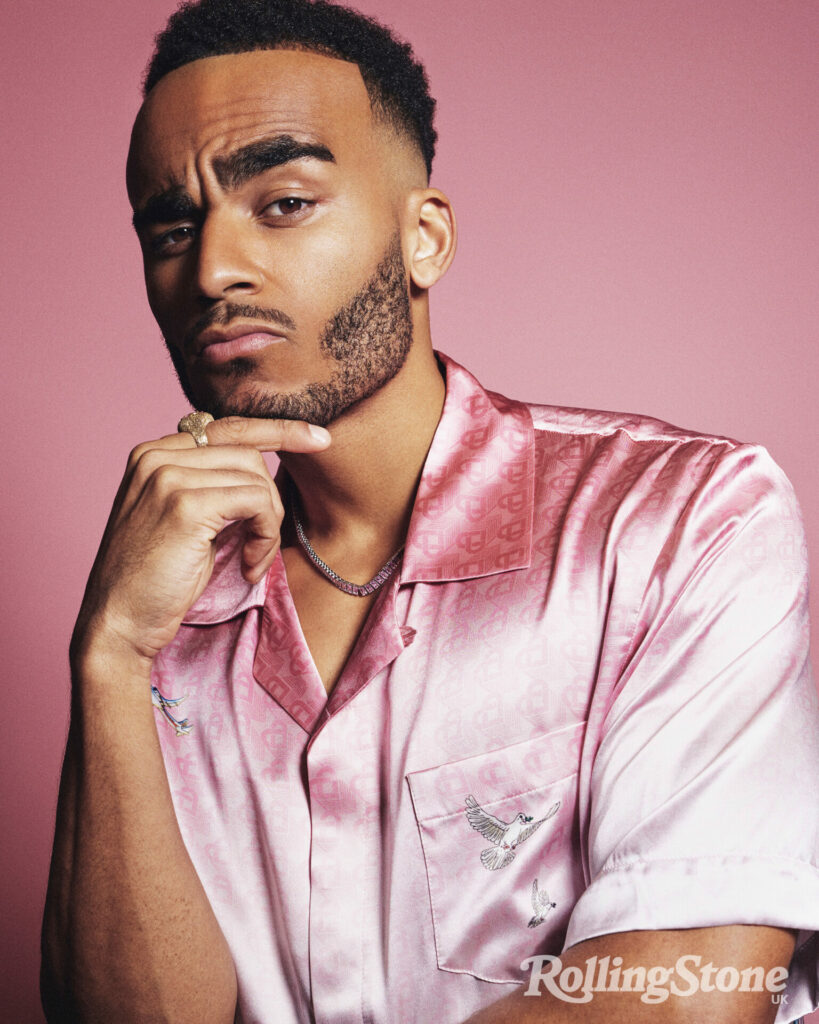
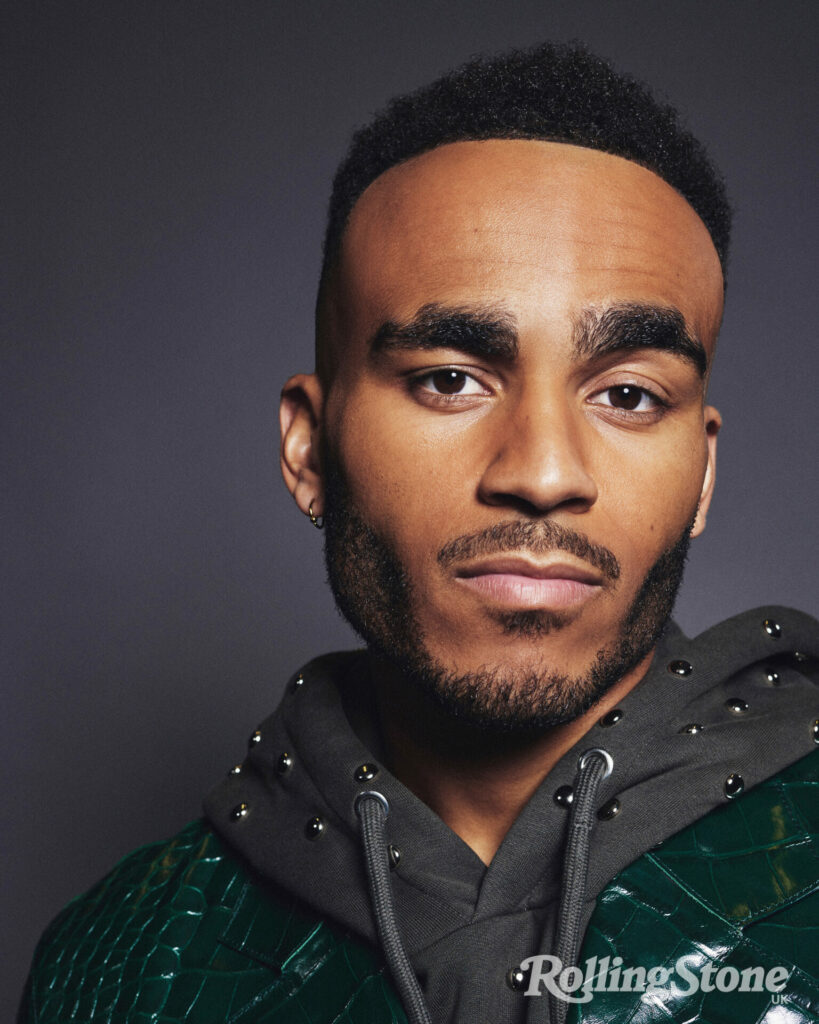
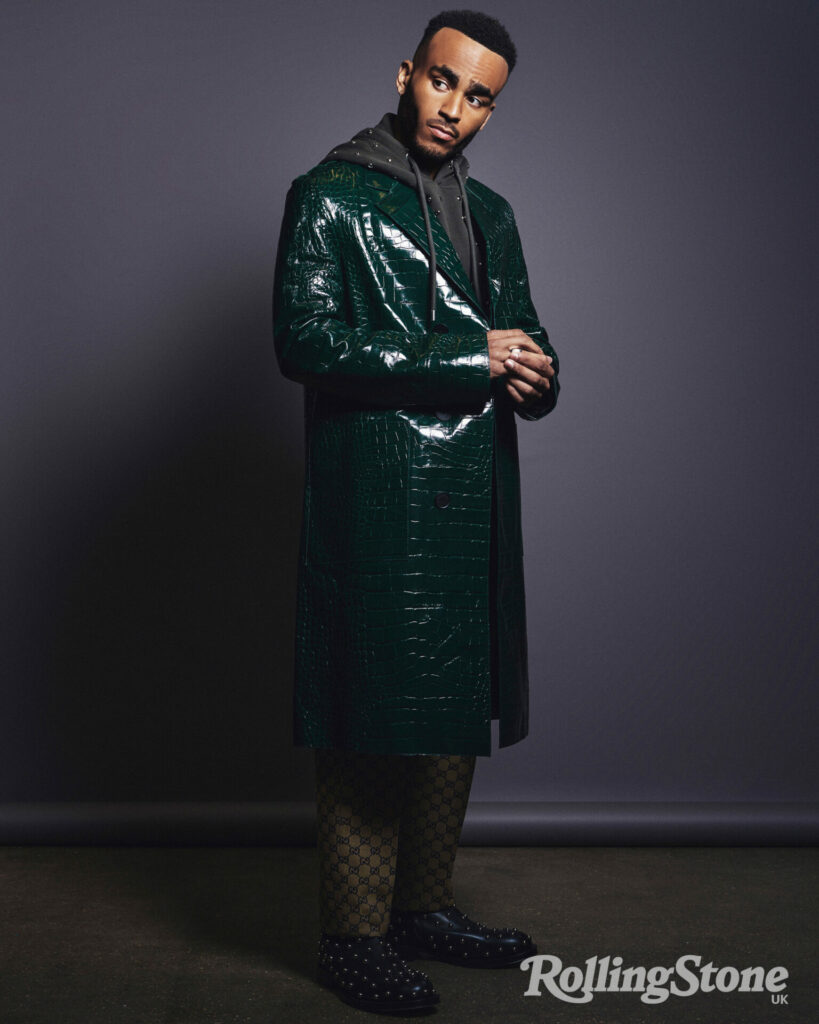
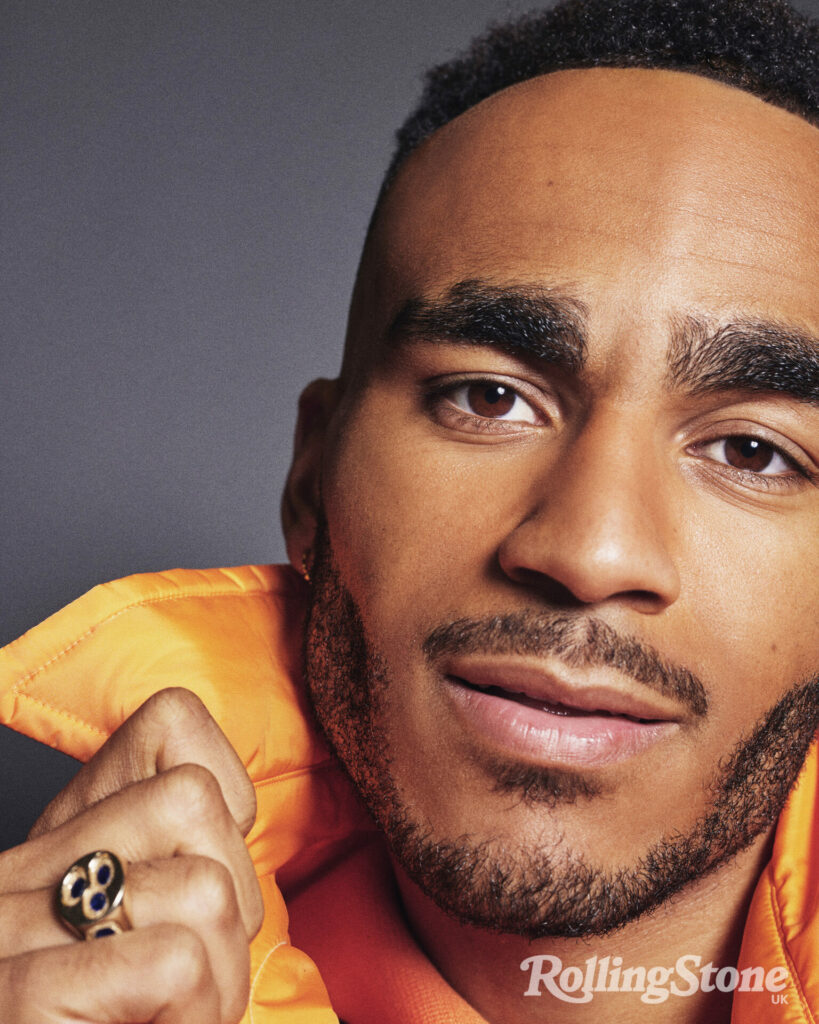
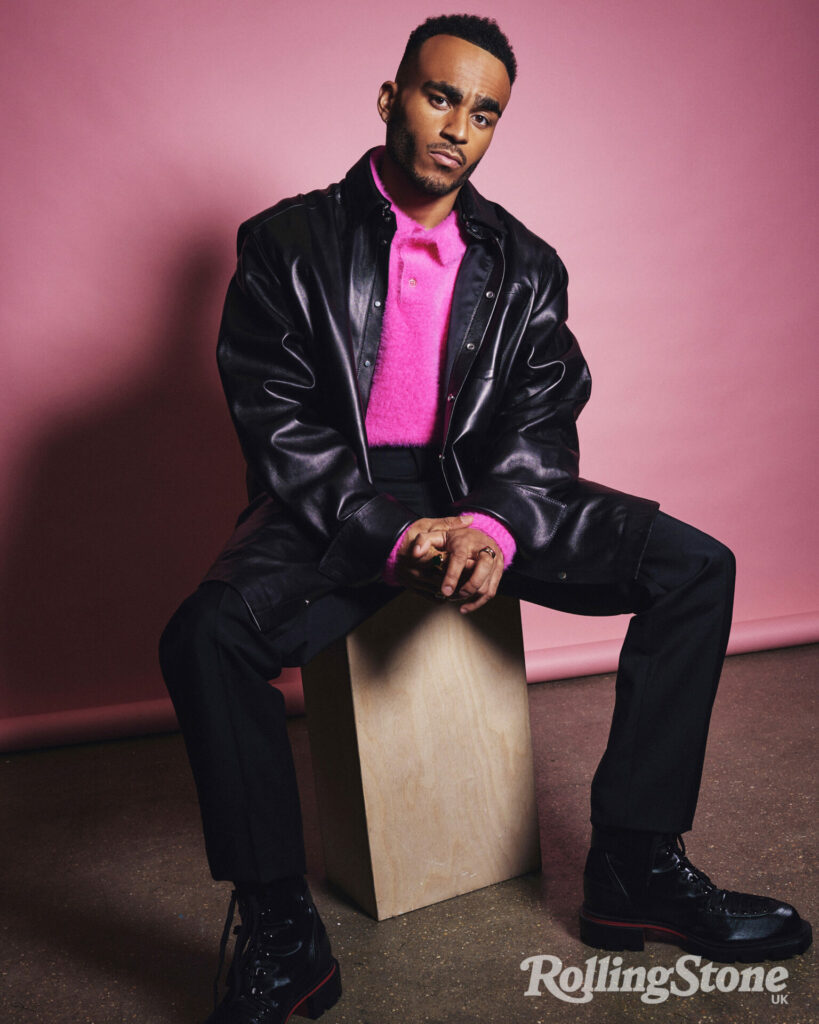
Situations like these have increasingly become the norm in recent years for Chawawa, the 30-year-old British-Zimbabwean satirist, stand-up comedian and actor, who seemingly drops everything and jumps into action at lightning speed whenever a major news event occurs.
To put it another way: if Batman has the Bat-Signal to let him know whenever Gotham City is in distress, Chawawa has the resounding cry of “WAKE UP, MUNYA!” flooding his Instagram inbox whenever his 1.2 million followers want to let him know that he’s needed to provide yet another unique spin on the tumultuous times we’re living through.
It’s testament to Chawawa’s very 21st-century brand of comedy that he has a city’s worth of people who follow his every move on social media and rely on him to skewer global events. His ability to turn around videos within hours of events breaking is seriously impressive, only matched by his ability to capture the zeitgeist.
Chawawa had originally envisaged becoming a TV presenter, but admits he almost fell into comedy in 2018 when he became so incensed by Jamie Oliver’s recipe for jerk rice – which was widely called out for cultural appropriation – that he felt obliged to make an Instagram skit about it.
“It felt like my lightbulb moment. I had this surge of electricity where everything in my life was saying ‘Bro, this is it. It’s your sweet spot. This is our pocket. Learn as quick as you can, evolve, dedicate yourself to the craft and it’s going to take you somewhere.’ So that’s what I did,” he says.
Since then, he’s had huge success with his videos. One of the most popular, which boasts over 3 million views, was recorded in June 2021, and saw him deliver a ruthless parody of Shaggy’s ‘It Wasn’t Me’ to take the piss out of then Health Secretary Matt Hancock when he was caught having an affair in Downing Street. “The Sun newspaper caught me red-handed / Creeping with the Tory next door,” he sang, just hours after the story broke.
More recently, it’s the UK government’s proposed ban of the XL Bully dog breed that has caught his attention. In one clip, he assumes the guise of a blinkered bully owner called Steve who blindly calls out “dog racism” against the breed. It’s a funny moment, but the clip then becomes something entirely unexpected, as Chawawa draws incredibly clever parallels with hostile attitudes towards the migrant crisis.
It’s for all these reasons that Chawawa – a comedian who has genuinely interesting things to say about the world we’re living in – is the perfect host for the Rolling Stone UK Awards 2023 in collaboration with Rémy Martin.
“You’re going to see a slick and professional Munya. I know what awards shows are like, the drinks will be flowing. If it gets lairy, I’m here to bring a bit of law and order, with the occasional dad joke,” he jokes.
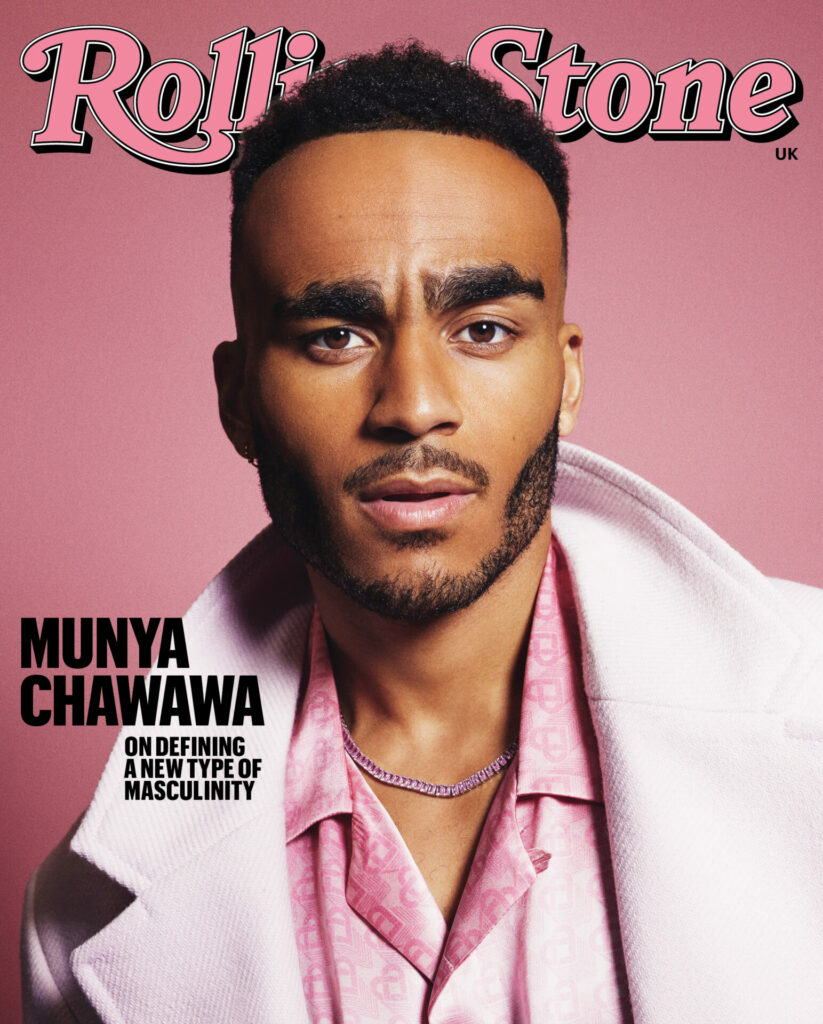
On set for his cover shoot, he’s a warm and amiable presence, explaining to everyone in the room how a Rolling Stone UK cover has sat atop of the vision board that hangs in his bedroom for the past year.
It’s where he displays images that reflect what he wants to achieve over the coming 12 months. It’s worked too, although perhaps not always in the way that he expected. An image of Dwayne Johnson – which represented his desire to land an on-screen role with The Rock himself – resulted in a brief cameo in the 2022 animated hit DC League of Super-Pets. The Rock provided the central role of Superdog – Clark Kent’s very own Labrador – while Munya delivered a brief cameo for UK audiences as, er, a Welsh corgi.
I tell him that my three-year-old niece, in her first-ever cinema trip, loved the film. “That’s all down to the voice acting of the corgi,” he jokes. “If she hasn’t left a review, please tell her to do so. Me and The Rock need all the help we can get.”
As for Rolling Stone UK’s place on that board, it’s our striking cover image of YouTuber and boxer KSI baring his six-pack that Chawawa has been staring at for the last year.
“I’d look at it every morning when I was lathering up, because when you’ve got dry skin, you have to lather up in Vaseline after every shower,” he reflects. “So, it is quite strange saying it out loud, I was staring into *that* Rolling Stone UK cover every morning! But you know what, the universe works in mysterious ways and we’re having this interview now, so there’s no questions asked.”

Chawawa was born in Derby in 1992 and fondly recalls how some of his earliest comic experiences were formed when he’d spend hours watching on in awe as his grandad engaged in a groan-worthy, dad-joke-packed battle of the wits with his uncle.
“My grandad was just a natural comedian, and I can remember wanting to tussle with that side of him,” he says. “My uncle would come around, and they’d trade dad jokes, and I just wanted to get involved, to have a piece of that rapport and watch these two people who were just effortlessly controlling the energy of a room.”
Thirty years later, Chawawa has managed to achieve that command of a room with his first ever UK stand-up tour, which has taken in three sold-out shows at London’s Kentish Town Forum this autumn and will conclude just weeks after our interview. But more on that later.
After spending his early years in Derby, Chawawa’s father moved the family to Zimbabwe when he was a child, with the comedian previously describing the African country as one of “the greatest places on Earth”. His love for the place he calls “Zim” is clear on the final night of three shows in London too, as he arrives on stage in a custom-designed Levi’s outfit embroidered with some of the country’s most recognisable emblems – including the Jacaranda trees that line the streets of Harare, and the rocks of Domboshava.
But when Chawawa was 11, his family moved back to the UK as a result of political and financial turmoil in the country under the regime of Robert Mugabe. It’s natural that any child going through such a move would be hit by culture shock, but the reality proved even harsher when Chawawa arrived in Framingham Pigot – a sleepy, quintessentially English village in Norfolk. The kind where the multiculturalism can sometimes seem like the made-up stuff of fairy tales.
“In Zimbabwe, Black is beautiful, but it’s also the norm. When people talk about experiences, it comes from the heart, and you understand that so much of the world is shaped through the colour that we are,” he says.
“When you move to England, there’s a bingo card which almost every person of colour carries, which is stuff like ‘Have you been called the N-word before?’ Or ‘Has anyone tried to touch your hair?’ That happened to me when someone finished off a bag of Wotsits and tried to dry their fingers off in my Afro.
“And in some sense, those experiences can bind you together. But for me, the shock came from being in a place where you could be the only Black person in your school, or the only Black person in your village. I had odd looks from people on tractors who were driving through the village. It felt like a microaggression at five miles an hour!”
That last quip is trademark Chawawa. He’s a comic who is able to tackle lofty subjects such as race, but always manages to finish with a strong gag that leaves audiences of his recent tour under no illusions about his comedic chops.
It’s something that stood him in good stead when faced with school bullies who tried to destroy the elephant he made in a woodwork class as a reminder of Zimbabwe and spread false rumours about him being a drug dealer. He says that his humour eventually won over some of his tormentors, while a nice “full-circle moment” came when he was elected as head boy, having previously been an “ostracised new kid”.

And besides, he admits, the experiences of Framingham Pigot have been ripe for turning into comic gold on his first ever stand-up tour. There’s one moment in the show where he reflects on a visit to the town by the Queen and delivers a razor-sharp joke about colonialism and stolen artefacts.
“I’m one of those people who largely believes that if you don’t laugh, you’ll cry,” he says. “And I’m gonna use those experiences to create a tale which we can all laugh [at]. But also, hopefully within that, you can gain the perspective of somebody who, you know, did have to deal with culture shock and was very lonely at times.”
He’s now living in London and loves that, unlike Framingham Pigot, the city’s “thousand creeds and colours” feels completely normal but says the experience has given him a new unlikely item to put on his vision board – the capital’s Lime Bikes.
“I need a Lime bike black card! I’ve done 392 trips this year! That’s 392 times I’ve had to stand and scan a Lime bike code. At this point, I’m doing the Tour de France on a Lime Bike, so they need to give me one. That’s going on the vision board,” he jokes.
Before January this year, Chawawa’s comic profile was well established on Instagram and on the small screen, through appearances on shows such as Taskmaster, his own BAFTA-nominated YouTube show Race Around Britain and an irreverent, colour-flipped turn as King Charles in Channel 4’s close-to-the-knuckle Prince Andrew: The Musical.

But he had never tried stand-up. Before embarking on a full-on stand-up tour, he set himself a daunting challenge of 80 work-in-progress sets at comedy clubs throughout the country. He says the experience was “relatively un-brutal” and explains that the perfectionist in him meant he rehearsed “two weeks, word for word” before his first-ever open-mic night. Even if it was a relatively heckle-free experience, not every crowd interaction went *quite* the way he had planned.
“There was one gig where I was halfway through and someone stood up with what looked like a pole and started pushing it along the floor,” he remembers. “I stopped the gig and just said, ‘Dude, why are you hoovering?’ He silently raised a pair of crutches. So that was quite harrowing! I had to recover with sheer flattery, I was complimenting the guy’s hairstyle and his shoes. But it was all good, we ended up having a good laugh about it.”
It has all helped Chawawa hone the show that Rolling Stone UK witnesses in north London on a rainy night in mid-October. From the start, he shows off accomplished crowd work – with one middle-aged white-man in the front immediately told by Chawawa that he’ll be called Babatunde for the evening. It’s a clever and meaningful spin on the frequent micro-aggression experienced by people of colour when their names are anglicised out of sheer laziness.
“It’s a funny way to show how ridiculous it is that you’re not giving someone their actual identity. I’ve been in a situation where someone has called me William!” he explains.
Elsewhere, there’s appearances for Unknown P – the posh Drill rapper persona that landed Chawawa a deal with Atlantic Records – and a sketch on how a childhood love of Harry Potter meant his mum had to dish out the books like drugs behind the back of his strict Christian father.
The show’s most remarkable moment, though, comes late on as Chawawa sits on a stool and earnestly admits how a mixture of imposter syndrome, anxiety, and male emotional repression – inherited from his father – led him to seek therapy for the first time in his career.

“In Zimbabwean culture at least, there are expectations put on a man to be this strong unshakeable rock at the centre of your family and that means suppressing your emotions. But I also had the pressure of wanting to be the satirist that I feel like I need to be to earn my place on panel shows and magazine covers,” he explains of the candour in that moment of the show.
“It was the conflict between those two things, the immovable object of African masculinity versus the unstoppable force of fast-moving pressure from this new job. I’m very thankful that I didn’t have a breakdown and that I was able to talk about it in the show and channel it positively into conversations with my other male friends and start to define a new type of masculinity within my own life that hopefully one day I can pass on. There was definitely pressure and it intermingled to create something that made me ask, ‘Am I going to let this break me, or am I going to break it?’
“In my tour, that is really the catharsis I needed to bury that issue, because I’m the master of it now. I can go onstage and speak about it and be vulnerable and feel like I’ve addressed it and not hidden it anymore. It was so scary, but so rewarding.”
Has his dad – framed in his stand-up as a famously hard-to-please father – seen the show?
“He has seen the show and he said what he says to everything I’ve ever done in my life, which is ‘That was quite good.’ And you know what? I’ll take it. That’s pretty much a five-star review from my dad,” he jokes.
Another person who has seen Chawawa perform is Stormzy, who was full of praise after attending the final night of Chawawa’s Kentish Town residency.
“That was another full-circle moment because I was working in an office when I started doing my sketches, and I remember erupting in the middle of the office when I first saw that he’d followed me on Instagram. He’s been super supportive, and after that show he just said to me, ‘You look like you were shining up there, you were doing your thing, and we were just all so happy and proud to see [you] up there doing your thing.’”

But it was bigger than that too. For Chawawa, it represented the latest step on a whirlwind journey that’s led him from Instagram to becoming a TV mainstay and one of British comedy’s leading lights.
“I just think to myself, ‘I came to London without any friends, family and no roots to lay here.’ There’s a version of Munya that would have thought, ‘How can I possibly turn this into something?’ But there was another side that said, ‘If you work hard, this city can feel like home.’ Those are the moments when I feel grateful for the journey and the way it’s happened. All the places have finally connected and got me to the place I am now.”
Photography by Mark Cant
Creative direction and styling by Joseph Kocharian
Grooming: Lucy Thomas using Exuviance skincare, Clinisoothe and NARS Cosmetic
Barbering: Mark Maciver at Slider Cuts
Fashion assistant: Aaron Pandher
